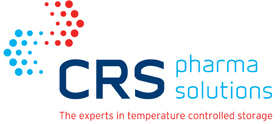New EU Medical Device Regulations Registration
Regulation 2017/745 on medical devices and Regulation 2017/746 on in vitro diagnostic devices came into force on 25 May 2017. The regulations have a staggered transitional period. The obligations for distributors will apply after three years (May 2020) and full application of the Regulation on in vitro diagnostic medical devices (IVDR) after five years (May 2022).
Within the UK and Europe, the legislative basis for the distribution of medical devices will be based on the new regulations. We have gathered some of the most important benefits and changes in this article.
Quality, safety and reliability
Medical devices are important to our health and quality of life. People rely on these devices and expect them to be safe to use. During recent years, the progress in science and innovation has been huge, and these new regulations aim to improve the safety of medical devices to align with the new changes.
In order to improve quality, safety and reliability, the new rules will impose tighter controls. The controls will require, among others, consultation from experts at the EU before placing the devices on the market.
Under the new regulations, medical devices are divided into four risk classes. These different risk categories determine which procedure is applicable before the product is placed on the market. When the risk class is high, specific notified bodies to get involved in the process.
Transparency
Patients’ choice will become a priority. People will be able to benefit from innovative, high performing devices. The new regulations will make this possible by imposing ways that allow easy traceability of the essential information. Each medical device will be assigned with a unique identifier. The details will be uploaded to the new European database of medical devices (EUDAMED).
People who get an implant, for instance, will receive a card with the essential information and this unique identifier number to check all the details when needed.
Vigilance
Once devices have been approved to be available on the market, manufacturers are obliged to store data about performance. This will enhance vigilance and market surveillance.
Also, for the first time, requirements specific to the registry data have been introduced as part of clinical evaluation. This aims to result in better integration of registry data in regulatory decision making.
If you are a distributor of medical devices and would like to know how our temperature-controlled solutions can help, get in touch.







